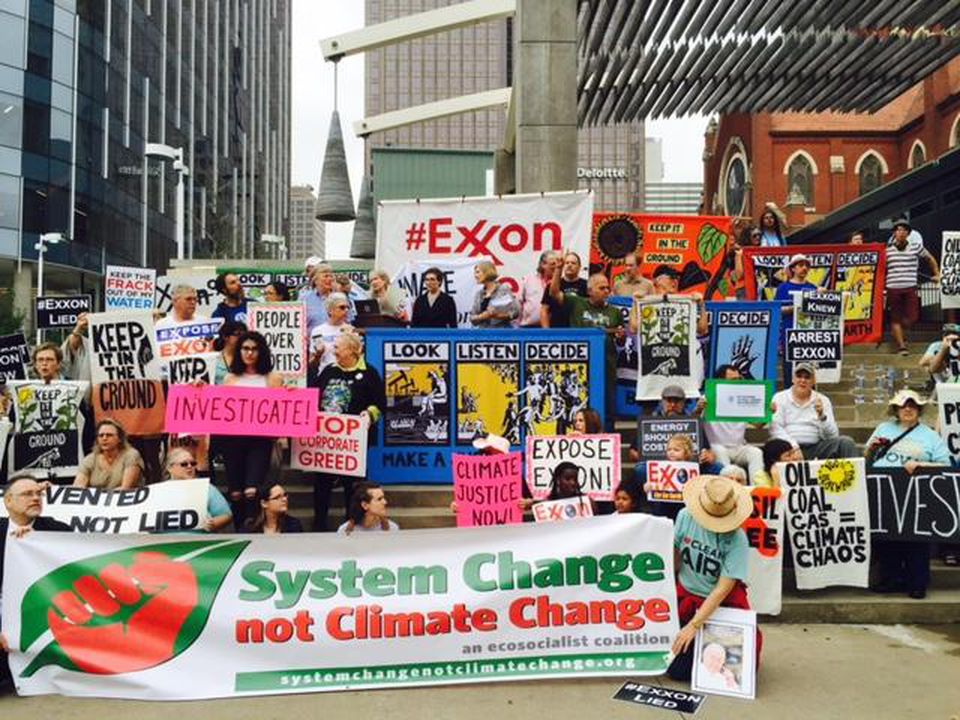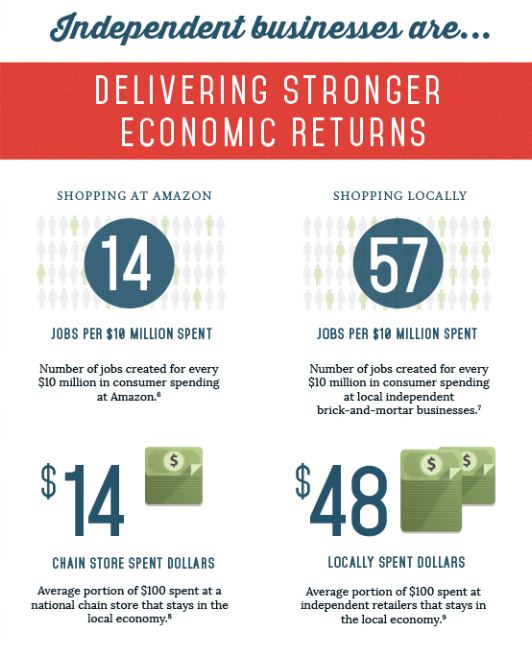Making change with where you spend, keep, and grow your money

Emma is the Strategic Communications Director and Symone is the Social Media and Digital Engagement Manager at Beneficial State Foundation. This blog was written in collaboration with Sophie Blistein, Marketing Coordinator at OpenInvest.
Recently, young people across the country organized massive marches and demonstrations to advocate for better legislation to effectively address gun violence issues. Did you know another critical way to join the fight for social justice is to take action on how you spend, keep, and grow your money?
You might be horrified to learn that your bank is financing the gun industry, or racially discriminating when making mortgage loans, or that your investments are leaning heavily into fossil fuels and accelerating climate change. We’re guessing you’re not into those things, and you want to know how your money can make a positive impact.
You, yes you, are an impact investor. Every day you make a variety of investments based on 1) where you spend your money 2) where you keep your money (where you bank) and 3) where you grow your money (with investments like a 401k). All of these investments use your money to give you some kind of a return. Here are a few simple ways to make an immediate difference:
Where you spend your money

When you spend your money at independently-owned businesses in your neighborhood, you invest in your local economy; you make an economic vote. The impact of your investment – whether it’s an ethically-sourced cup of coffee or a local artist’s painting – is known as the local multiplier effect: nearly half of your spending is recirculated locally when you frequent independent businesses, versus a mere 14% at chain retailers. That’s a HUGE difference!
Localization is about equity, diversity, and distribution of ownership among local residents. It’s about everybody getting a piece of the pie. Supporting businesses owned by our neighbors, instead of massive corporate chains and monopolies, means more distributed power, control, and wealth. It means more people have a voice, and that our business owners represent our community. A couple of things to consider when choosing a local business to support include asking: Is this a mom-and-pop shop? Does this business support other businesses in the neighborhood, either by selling products from local makers or using services provided by local businesses?
Tools to help you invest locally:
- BOABOB directory (in the process of being updated!)
- Backing Black Business
- Shop Latinx
- Find an independent business alliance in your area
Where you keep your money
On the flip-side, where you keep your money also makes you an investor because the money you deposit into your bank or credit union account funds that institution’s lending practice (that is, what kinds of loans that bank or credit union makes). Does my bank finance private prisons or immigrant detention centers? Does my bank finance fossil fuel projects? What sort of corporations does my financial institution partner with? These are just a few questions you can ask to determine if your deposits are funding a lending practice that aligns with your values.
Tools to help you bank on your values:
Where you grow your money
In the same way that the money you spend and hold can finance activities you don’t care for, so can the money you invest.
Even if you’re not a millionaire invested in a hedge fund, your retirement accounts (like 401ks and IRAs) and the money you’re saving through stock market investments are propping up all kinds of companies. Standard investments in the most common mutual funds or exchange traded funds (ETFs) make you a part owner of oil and gas companies, most of Wall Street, Big Tobacco, and plenty of other companies that might be a red flag for you.
Some people worry that playing around with where you invest will impact how your investments do, and no one wants to be left high and dry for retirement. While no one can say for sure how an investment will do, people have spent decades doing research that for the most part shows that responsible investing does just as well as regular investing.
Tools to empower your investments:
- Use your allotted vote as a shareholder to demand corporations be better, as activists did with ExxonMobil last year.
- When making plans to divest, look for ‘green’, ‘ESG’ (environmental, social, governance) or ‘SRI’ (socially responsible investing) rated funds or ETFs, or go for total customization with OpenInvest.
- Actively invest in companies you do believe in, or in your community. Companies like Neighborly and CNote allow for different kinds of investments that support communities and can fit into a diversified portfolio.
This blog post reflects the authors’ personal views and opinions, and does not represent the views and opinions of Beneficial State Bank and/or Beneficial State Foundation.



